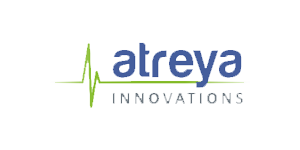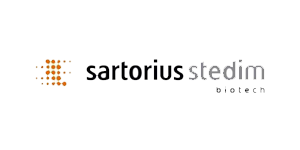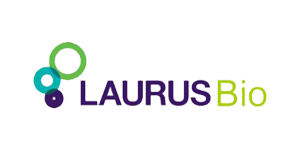
8 Mistakes to Absolutely Avoid While Performing Industrial Gas Purity Testing
Industrial gas purity testing is a critical aspect of maintaining the quality, safety, and compliance of gases used in various industries such as pharmaceuticals, food production, aerospace, and manufacturing. Any errors or missteps during the testing process can lead to inaccurate results, regulatory non-compliance, or compromised product quality. In this blog, we’ll highlight eight common mistakes to avoid when performing industrial gas purity testing to ensure reliable and accurate results.
Mistake 1: Inadequate Calibration of Equipment
One of the most significant mistakes in industrial gas purity testing is using improperly calibrated equipment. Gas analyzers, sensors, and detectors must be calibrated regularly to ensure accurate measurements. If equipment is out of calibration, test results may be inaccurate, leading to poor decision-making and non-compliance with regulatory standards.
How to Avoid: Implement a strict calibration schedule and follow the manufacturer’s recommendations for calibration intervals. Regularly check and maintain all testing equipment to ensure it operates within the required accuracy levels.
Mistake 2: Contaminated Sampling Containers
Using dirty or improperly cleaned containers for collecting gas samples is another common mistake that can lead to false results. Contaminants from previous tests or residue from handling can introduce impurities into the sample, skewing the results of purity testing.
How to Avoid: Ensure all sampling containers and equipment are thoroughly cleaned and properly maintained before use. Use disposable, sealed sampling bags or cylinders whenever possible, and never reuse containers that may have been contaminated.
Read More: 10 Key Challenges in Industrial Gas Purity Testing and How to Overcome Them
Mistake 3: Incorrect Sampling Procedures
Improper sampling techniques can cause discrepancies in industrial gas purity testing results. For instance, improper handling, such as not sealing the sample container properly, or waiting too long between collection and testing, can allow contaminants to enter or escape the sample, making the test results unreliable.

How to Avoid: Follow standardized sampling protocols that minimize the risk of contamination. Collect samples quickly and seal containers tightly. Always follow recommended guidelines for gas flow rates and avoid exposure to the ambient environment when collecting the sample.
Read More: 6 Critical Truths You Need to Know About Industrial Gas Purity Testing
Mistake 4: Failure to Monitor Environmental Conditions
Environmental factors such as temperature, humidity, and pressure can impact the purity of the gas being tested. Failing to account for these factors can lead to inaccurate measurements. For example, moisture in the environment can react with gases or sensors, affecting the readings.
How to Avoid: Control and monitor environmental conditions in the testing area. Use temperature and pressure compensation techniques to account for any environmental fluctuations that may impact purity results. Ensure that tests are conducted under consistent, controlled conditions.
Read More: 6 Critical Truths You Need to Know About Industrial Gas Purity Testing
Mistake 5: Not Using the Appropriate Testing Method
Different gases require different testing methods. Using the wrong method can result in inaccurate or incomplete analysis. For example, gas chromatography may be required for detecting trace-level impurities in certain gases, while simpler techniques might suffice for others.
How to Avoid: Choose the appropriate testing method based on the type of gas being tested. Ensure your team is trained in using the correct techniques for each gas and impurity level. Regularly review the methods to ensure they remain relevant as gas purity standards evolve.
Mistake 6: Ignoring Regular Maintenance of Equipment
Overlooking routine maintenance of testing equipment can result in equipment malfunctions or decreased accuracy over time. Sensors and analyzers that are not cleaned or calibrated regularly may produce unreliable data, leading to incorrect purity assessments.
How to Avoid: Implement a proactive maintenance plan that includes regular cleaning, calibration, and performance checks. Keep detailed records of all maintenance and repairs to ensure optimal performance and prevent unexpected issues.
Mistake 7: Relying on Outdated Standards and Regulations
Industrial gas purity standards and regulations can change over time. Relying on outdated standards can lead to non-compliance and result in inaccurate testing methods. Staying up-to-date with the latest regulatory guidelines is essential to ensure that gas purity testing meets industry expectations.
How to Avoid: Regularly review and update your testing procedures to align with the latest regulations and industry standards. Attend workshops, consult with experts, and stay informed about any changes to regulations regarding gas purity.
Mistake 8: Lack of Proper Documentation and Record Keeping
Proper documentation of gas purity testing is critical for traceability, quality control, and regulatory compliance. Failing to maintain accurate records can lead to a lack of accountability, make audits difficult, and expose your organization to legal risks if the gas purity is questioned.
How to Avoid: Implement a robust system for documenting all test results, calibration data, maintenance records, and compliance checks. Ensure that all relevant data is recorded, stored securely, and easily accessible for future reference or audits.
Read More: Seal Strength Testing: Importance, Standards, Protocols, and Advanced Considerations
Conclusion
Avoiding these common mistakes in industrial gas purity testing is crucial to ensuring accurate, reliable results and maintaining compliance with regulatory standards. By implementing proper sampling techniques, maintaining equipment, and staying informed about industry regulations, you can achieve high-quality gas purity results and avoid costly errors that could affect your products or operations.
How Prewell Labs Can Help
At Prewel Labs, we specialize in providing accurate and reliable industrial gas purity testing services. Here’s how we can help you avoid these mistakes:

- Expert Calibration and Maintenance: Our team ensures that all testing equipment is properly calibrated and maintained to deliver precise results every time.
- Advanced Sampling and Testing: We use advanced, industry-specific testing methods to analyze gas purity, ensuring that your results are accurate and aligned with the latest standards.
- Regulatory Compliance: We help you stay compliant with the latest regulations like the FDA, ensuring your gas purity tests meet all necessary legal and industry requirements.
- Comprehensive Documentation: We provide thorough and well-documented test reports to ensure transparency, traceability, and ease of regulatory audits.
Contact Prewell Labs today to learn more about our industrial gas purity testing services and how we can help ensure the quality and safety of your operations.


























